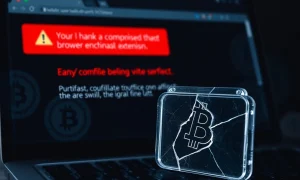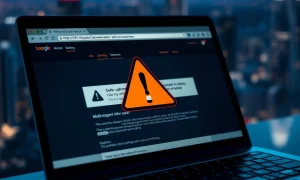The UK government is preparing unprecedented emergency measures to shield Britain’s automotive industry from collapse following the devastating Jaguar Land Rover cyberattack that has paralyzed production for nearly a month. Business Secretary Peter Kyle confirmed officials are actively considering a radical parts-purchasing scheme to prevent mass job losses across the manufacturer’s 700-supplier network.
Emergency Government Response to Jaguar Land Rover Cyberattack
The proposed intervention represents one of the most significant government manufacturing rescues in recent history. Consequently, ministers would temporarily purchase components from JLR’s supply chain partners. Subsequently, they would sell these parts back once production resumes. This extraordinary move comes as the shutdown enters its fourth week, having already cost the carmaker and its suppliers hundreds of millions of pounds.
Supply Chain Crisis Deepens After Cyber Incident
Union leaders warn the prolonged stoppage poses an existential threat to smaller suppliers reliant on JLR’s “just in time” manufacturing schedules. Meanwhile, several component manufacturers have already paused production and sent workers home. The Jaguar Land Rover cyberattack has particularly impacted:
- UK plants in Solihull, Halewood, and Castle Bromwich
- International facilities in Slovakia, Brazil, and India
- 700 supplier companies throughout the supply chain
- 32,800 UK employees facing uncertainty
JLR’s Financial Struggles Compound Cyberattack Damage
The cyberattack struck at an exceptionally vulnerable moment for Jaguar Land Rover. Recently, the company reported a 49% plunge in pre-tax profits to £351 million for the quarter ending June. Additionally, new US tariffs have significantly impacted profitability. Furthermore, the launch of crucial electric models faces delays until next year.
Leadership Changes Amid Manufacturing Crisis
JLR has scrambled to maintain its supply network viability during the shutdown. Reportedly, the company has paid £300 million to partners in recent days. Moreover, 50 staff members have been assigned to manually process payments. Simultaneously, Tata Motors finance chief PB Balaji is set to replace Adrian Mardell as chief executive in November.
Implementation Challenges for Rescue Package
The government purchase scheme faces several practical hurdles. Primarily, limited storage capacity exists for the vast volumes of car parts involved. Additionally, officials must assume that lost production doesn’t translate into permanent lost sales. Business Secretary Kyle emphasized: “Getting JLR back online as soon as possible is my top priority, providing much-needed certainty to workers and suppliers.”
Broader Implications for UK Manufacturing Security
The Jaguar Land Rover cyberattack highlights growing vulnerabilities in modern manufacturing ecosystems. Importantly, this incident follows other major cyber incidents affecting UK businesses. Consequently, industry experts call for enhanced cybersecurity measures across the automotive sector. The government’s response could establish important precedents for future industrial crisis management.
Frequently Asked Questions
What caused the Jaguar Land Rover production shutdown?
A significant cyberattack on August 31 forced JLR to freeze production across all its global manufacturing facilities.
How long has the shutdown lasted?
The production freeze is now entering its fourth week, with no confirmed restart date announced.
What specific government intervention is being considered?
Officials are evaluating a scheme where the government would purchase parts from suppliers and sell them back to JLR once production resumes.
How many jobs are at risk from the cyberattack?
Approximately 32,800 UK jobs directly depend on JLR, with thousands more in the supply chain potentially affected.
What financial impact has the cyberattack had?
The shutdown has cost JLR and its suppliers hundreds of millions of pounds, compounding existing financial challenges.
Are other car manufacturers affected by this incident?
While the attack specifically targeted JLR, the incident highlights vulnerabilities across the automotive industry’s digital infrastructure.







